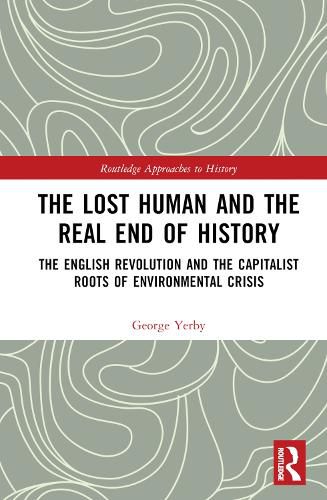Readings Newsletter
Become a Readings Member to make your shopping experience even easier.
Sign in or sign up for free!
You’re not far away from qualifying for FREE standard shipping within Australia
You’ve qualified for FREE standard shipping within Australia
The cart is loading…






This book analyses the transformation in 16th- and 17th-century English economic life that overturned the traditional restraints of the medieval economy for the commercial ethos that governs the modern world, and the resulting imbalance which opened the way to the environmental breakdown of today.
On the open fields and commons, the smallholders had worked closely with the land as given, with minimal intervention in natural processes. The 16th century introduced a fundamental difference of approach as the inducement of exceptional profits encouraged manipulative exploitation of the land. "Freedom of trade" from arbitrary restraints and impositions became the new economic ethos, officially established by the mid-17th century revolution and reinforced by other changes such as the emergence of the nation-state. The "rise of science" was associated with the agriculturalist adoption of empirical method for "improvement", and a new philosophy accorded humankind the right to degrade other species for its own ends. By focusing on the causes and effects of capitalism at its first appearance, this volume traces the environmental crisis back to the switch from an essentially universalist to a basically individualist world.
This book will be of interest to scholars and students of Early Modern England, Economic Studies, and Environmental Studies.
$9.00 standard shipping within Australia
FREE standard shipping within Australia for orders over $100.00
Express & International shipping calculated at checkout
This book analyses the transformation in 16th- and 17th-century English economic life that overturned the traditional restraints of the medieval economy for the commercial ethos that governs the modern world, and the resulting imbalance which opened the way to the environmental breakdown of today.
On the open fields and commons, the smallholders had worked closely with the land as given, with minimal intervention in natural processes. The 16th century introduced a fundamental difference of approach as the inducement of exceptional profits encouraged manipulative exploitation of the land. "Freedom of trade" from arbitrary restraints and impositions became the new economic ethos, officially established by the mid-17th century revolution and reinforced by other changes such as the emergence of the nation-state. The "rise of science" was associated with the agriculturalist adoption of empirical method for "improvement", and a new philosophy accorded humankind the right to degrade other species for its own ends. By focusing on the causes and effects of capitalism at its first appearance, this volume traces the environmental crisis back to the switch from an essentially universalist to a basically individualist world.
This book will be of interest to scholars and students of Early Modern England, Economic Studies, and Environmental Studies.